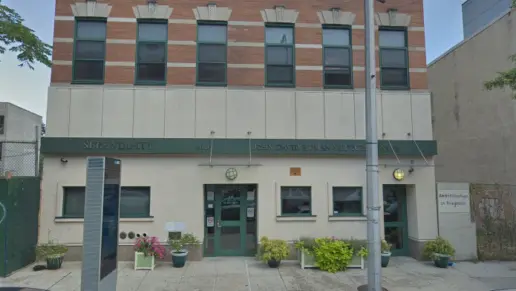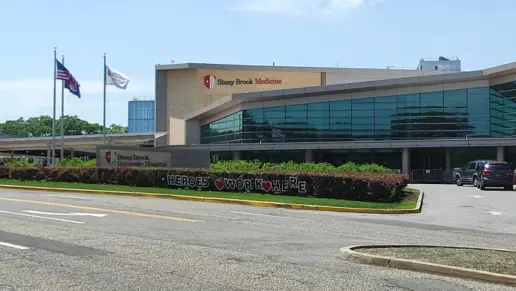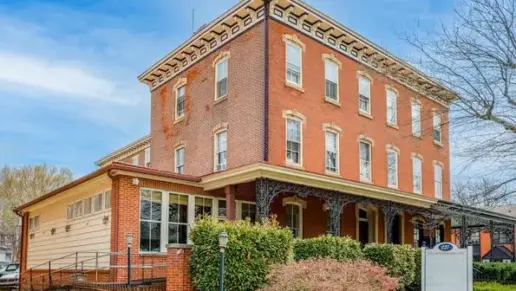About Mount Sinai West
Mount Sinai is world-renowned for its innovative and cutting-edge medical research and care. The Mount Sinai West Addiction Institute and mental health programs at 1000 10th Ave in New York City are no different.
They have a prolific psychiatry and substance abuse treatment program. This includes care at every level from 24-hour crisis intervention and inpatient units to outpatient programs that allow individuals to seek support if needed on occasion. Intensive outpatient programs and day treatment are also available through Mount Sinai West’s Addiction Institute and Psychiatry Departments.
Inpatient Programs and Care
Inpatient services are most often accessed through the emergency department and admissions are accepted 24 hours a day 7 days a week at Mount Sinai West. Once a person comes to the ER they will be assessed and evaluated by medical, mental health and addiction specialists who will help confirm a diagnosis and or needed treatment plan.
After this initial five to seen days of detox, the treatment focus will shift to rehabilitation and recovery.
Mental Rehabilitation Services
Just like your body needs physical rehabilitation and physical therapy after an injury or accident, your mental health needs rehabilitation from harmful habits, past traumas, and destructive coping mechanisms. Rehabilitation offers daily therapy sessions and self-help groups. Group, individual, and family counseling, Motivational enhanced and psychoeducational groups help patients develop healthy goals and build positive life coping skills.
Art Therapy, stress reduction programs, nutritional counseling and Intensive Relapse Prevention Training are all a part of treatment here and seem to help many patients have success in their future sober life.
Medication Assisted Treatment
Methadone and Buprenorphine are medications offered in conjunction with other therapies to give each person the physical help they need to be successful in recovery.
They have a Crystal Clear Project that helps face the extensive crystal meth problem. This program is specifically designed to address the needs of gay and bisexual men and to help them live a safer lifestyle when it comes to substance abuse or unsafe sexual practices
Case management and general medical care are offered as well as specialized programs for HIV and Hepatitis C testing, management, and care are provided to those in need. There is a women’s only clinic and anyone in the MAT program has access to any and all psychiatric and medical services within the Mount Sinai Health System when needed.
Comprehensive Outpatient Care
There is an intensive outpatient program which gives support five days a week, a specialized program for seniors in recovery, and a child and adolescent treatment program as well.
Facility Overview
Latest Reviews
https://mountsinai.formstack.com/forms/orm?S=Google-MSW&U=DSZFD&RD=8-31-25
Rehab Score
Gallery
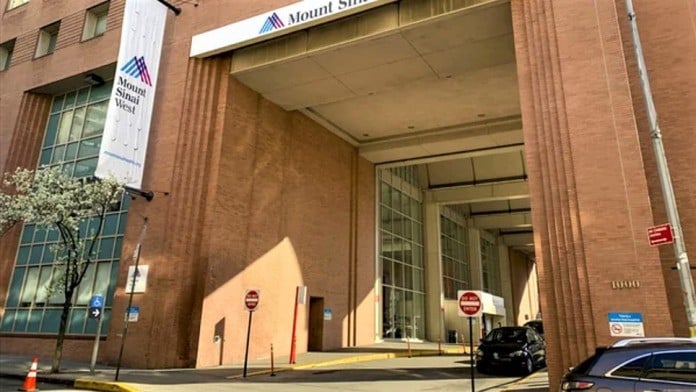
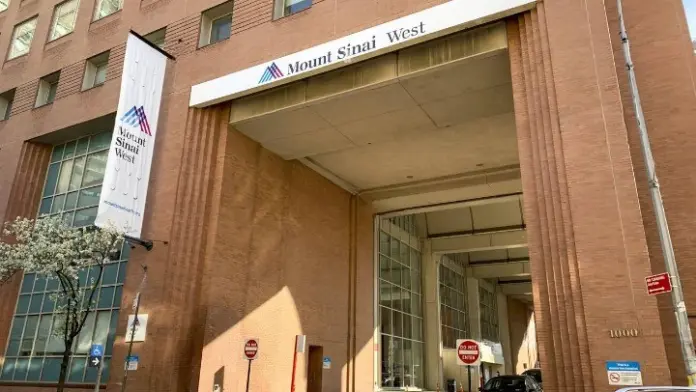
Other Forms of Payment
Private insurance refers to any kind of healthcare coverage that isn't from the state or federal government. This includes individual and family plans offered by an employer or purchased from the Insurance Marketplace. Every plan will have different requirements and out of pocket costs so be sure to get the full details before you start treatment.
Self-pay involves paying for treatment out of your own pocket. You can use savings or credit, get a personal loan, or receive help from family and friends to fund your treatment. If you don't have insurance or your insurance plan doesn't cover a specific program, self-pay can help ensure you still get the care you need.
Addiction Treatments
Levels of Care
 Outpatient
Outpatient
 Inpatient
Inpatient
 Intensive Outpatient
Intensive Outpatient
 Aftercare Support
Aftercare Support
 Sober Living Homes
Sober Living Homes
 Partial Hospitalization Program
Partial Hospitalization Program
 24-Hour Clinical Care
24-Hour Clinical Care
 Medically Assisted Detox
Medically Assisted Detox
Treatments
The goal of treatment for alcoholism is abstinence. Those with poor social support, poor motivation, or psychiatric disorders tend to relapse within a few years of treatment. For these people, success is measured by longer periods of abstinence, reduced use of alcohol, better health, and improved social functioning. Recovery and Maintenance are usually based on 12 step programs and AA meetings.
When you choose drug rehab in New York, you'll participate in a variety of treatments that are designed to help you live a drug-free lifestyle. Common methods of treatment include group, individual, and family counseling, medication management, nutrition, exercise, and management of co-occurring mental health disorders.
Many of those suffering from addiction also suffer from mental or emotional illnesses like schizophrenia, bipolar disorder, depression, or anxiety disorders. Rehab and other substance abuse facilities treating those with a dual diagnosis or co-occurring disorder administer psychiatric treatment to address the person's mental health issue in addition to drug and alcohol rehabilitation.
A combined mental health and substance abuse rehab has the staff and resources available to handle individuals with both mental health and substance abuse issues. It can be challenging to determine where a specific symptom stems from (a mental health issue or an issue related to substance abuse), so mental health and substance abuse professionals are helpful in detangling symptoms and keeping treatment on track.
Opioid rehabs specialize in supporting those recovering from opioid addiction. They treat those suffering from addiction to illegal opioids like heroin, as well as prescription drugs like oxycodone. These centers typically combine both physical as well as mental and emotional support to help stop addiction. Physical support often includes medical detox and subsequent medical support (including medication), and mental support includes in-depth therapy to address the underlying causes of addiction.
In New York you'll find substance abuse treatment programs that can help you address your addiction, and any co-occurring mental health disorders. These programs utilize evidence-based therapies such as cognitive-behavioral therapy (CBT), dialectical behavior therapy (DBT), and psychodynamic approaches to help you achieve recovery and new tools to sustain it. With various treatment options available, including outpatient, inpatient, and residential programs, you'll be able to find the resources and right level of care you need to effectively treat your addiction.
Programs

Adult Program

Young Adult Program

LGBTQ Program
Clinical Services
Cognitive Behavioral Therapy (CBT) is a therapy modality that focuses on the relationship between one's thoughts, feelings, and behaviors. It is used to establish and allow for healthy responses to thoughts and feelings (instead of unhealthy responses, like using drugs or alcohol). CBT has been proven effective for recovering addicts of all kinds, and is used to strengthen a patient's own self-awareness and ability to self-regulate. CBT allows individuals to monitor their own emotional state, become more adept at communicating with others, and manage stress without needing to engage in substance abuse.
Dialectical Behavior Therapy (DBT) is a modified form of Cognitive Behavioral Therapy (CBT), a treatment designed to help people understand and ultimately affect the relationship between their thoughts, feelings, and behaviors. DBT is often used for individuals who struggle with self-harm behaviors, such as self-mutilation (cutting) and suicidal thoughts, urges, or attempts. It has been proven clinically effective for those who struggle with out-of-control emotions and mental health illnesses like Borderline Personality Disorder.
Group therapy is any therapeutic work that happens in a group (not one-on-one). There are a number of different group therapy modalities, including support groups, experiential therapy, psycho-education, and more. Group therapy involves treatment as well as processing interaction between group members.
In individual therapy, a patient meets one-on-one with a trained psychologist or counselor. Therapy is a pivotal part of effective substance abuse treatment, as it often covers root causes of addiction, including challenges faced by the patient in their social, family, and work/school life.
Motivational Interviewing (MI) is a clinical approach to helping people with substance abuse issues and other conditions shift behavior in positive ways. It is more goal-oriented than traditional psychotherapy, as MI counselors directly attempt to get clients to consider making behavioral change (rather than wait for them to come to conclusions themselves). Its primary purpose is to resolve ambivalence and help clients become able to make healthy choices freely.
Whether a marriage or other committed relationship, an intimate partnership is one of the most important aspects of a person's life. Drug and alcohol addiction affects both members of a couple in deep and meaningful ways, as does rehab and recovery. Couples therapy and other couples-focused treatment programs are significant parts of exploring triggers of addiction, as well as learning how to build healthy patterns to support ongoing sobriety.
Research clearly demonstrates that recovery is far more successful and sustainable when loved ones like family members participate in rehab and substance abuse treatment. Genetic factors may be at play when it comes to drug and alcohol addiction, as well as mental health issues. Family dynamics often play a critical role in addiction triggers, and if properly educated, family members can be a strong source of support when it comes to rehabilitation.
Coping with day to day living is a challenge while in addiction recovery. Life skills training helps you learn how to manage daily tasks and deal with stress in healthy ways. This is key to long term recovery.
As you recover from addiction, eating the right foods will help you heal and build your health for long term sobriety. Nutrition therapy teaches you about the nutrition your body needs and how to eat the right foods to support your recovery.
Nicotine is an addictive substance found in cigarettes. When you stop smoking, your body experiences withdrawal from this substance. Nicotine replacement therapy lets you slowly reduce your nicotine intake so you experience minimal withdrawal symptoms. Eventually you'll be down to zero.
Amenities
-
Private Rooms
Staff & Accreditations
Staff
Evan Flatow, MD
President, Mount Sinai Morningside and Mount Sinai West
Tracy Breen, MD
Chief Medical Officer, Mount Sinai Morningside and Mount Sinai West
Marsha Sinanan-Vashista, MBA, MSN, RN, NEA-BC, FAAN
Interim VP/CNO, Mount Sinai Morningside and Mount Sinai West
Timothy Day, MPH, RN
COO, Mount Sinai Morningside and Mount Sinai West
Lisa Mazie, MS
CAO, Mount Sinai Morningside and Mount Sinai West
Leah Borenstein
VP for Perioperative Services, Mount Sinai Morningside and Mount Sinai West
Janice Connolly
VP for Administration, Mount Sinai West
Carol DeJesus, LCSW, CCM
VP for Care Transitions and Population Health, Mount Sinai Morningside
Accreditations

The Joint Commission, formerly known as JCAHO, is a nonprofit organization that accredits rehab organizations and programs. Founded in 1951, the Joint Commision's mission is to improve the quality of patient care and demonstrating the quality of patient care.
Joint Commission Accreditation: Yes
Contact Information
1000 10th Ave
New York, NY 10019
